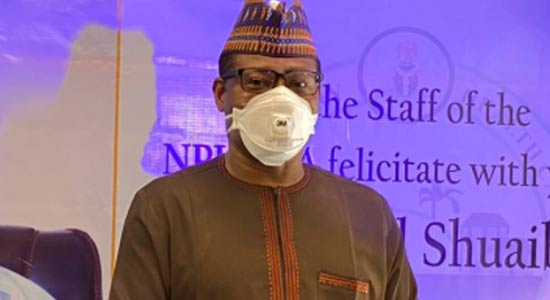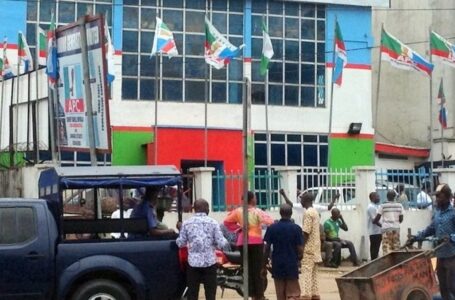COVID-19: Why vaccinated persons still get infected — NPHCDA


By Joseph Ayinde
The National Primary Health Care Development Agency (NPHCDA), has said that people with breakthrough infection after incomplete and complete vaccination have less symptoms and less severe disease, and – importantly after full vaccination less prolonged COVID-19 symptoms.
The Executive Director of the National Primary Health Care Development Agency, (NPHCDA), Dr Faisal Shuaib, gave the explanation to newsmen on Tuesday, during the National Vaccination update on Friday.
The News Agency of Nigeria (NAN) reports said that breakthrough infection is a case of illness in which a vaccinated individual becomes sick from the same illness that the vaccine is meant to prevent.
Shuaib disclosed that there have been reports of cases where individuals contracted the virus 14 days after being fully vaccinated in Nigeria.
“If a person gets infected with the SARS-CoV-2 virus 14 days after the second shot of the vaccine, it is called a ‘breakthrough infection’. The two-week window is the time it takes for the body to produce necessary antibodies following a shot of the vaccine.
“A ‘breakthrough infection’ refers to the virus being able to penetrate the protective barrier of antibodies.
“The observation is that in these individuals, the disease is usually milder than those who were unvaccinated. Vaccination prevents one from severe disease, hospitalization and death.
“If our communities continue to remain unvaccinated, we will keep endangering our communities, especially those who are vulnerable,” he said.
Shuaib explained that COVID-19 vaccines show excellent efficacy in clinical trials and effectiveness in real-world data, but some people still become infected with SARS-CoV-2 after vaccination.
The NPHCDA added that this group of vaccinated individuals with COVID-19, are more likely to be completely asymptomatic than unvaccinated people.
“The chance of a breakthrough infection is low. It would be significantly lower if more people are vaccinated.
“Your individual risk for COVID-19 after vaccination also depends on the individual, your overall health, the precautions you take and how often you are exposed to unvaccinated people who could be infected,” he noted.
He disclosed that the agency had introduced a special vaccination exercise that would enable members of staff and retirees of public and private sector firms to be vaccinated in their office premises.
According to him, the platform was created pursuant to the government’s mandate of making vaccination compulsory for all civil servants, as well as in recognition of the fact that some workers may find it difficult to leave their duty posts to vaccination sites.
“We have introduced and expanded in-situ corporate vaccination. This entails making special arrangements for eligible staff, dependents and retirees of Ministries, Departments and Agencies of Government (MDAs) and the private sector to get vaccinated in their office premises.
“MDAs, public and private corporate organizations that require staff to be vaccinated should visit www.nphcda.gov.ng to fill the request form. These services would be provided at no cost to the Ministries, agency/cooperate bodies,” he said.
Shuaib, speaking further, disclosed that Nigeria had been categorized as an ‘amber’ country by the government of the United kingdom based on the number of populations immunized and incidence rates of COVID-19 infection.
“Travellers from Amber’s countries, according to him, are placed under compulsory isolation by the United Kingdom’s government, whether or not such a person has been vaccinated,” he noted.
He said, “We have been inundated with questions about why the UK insists Nigerians who have been fully vaccinated are still required to isolate upon arrival in the UK.
“Nigeria alongside countries like France and the Netherlands are listed as amber countries by the UK Government based on criteria such as the number of populations immunized and incidence rates of COVID-19 infection.
“Individuals from Countries listed as amber countries are required by the UK Government to take a COVID-19 test upon arrival and be quarantined for a few days,” he said.
According to the Agency, as of 6th September 2021, a total of 3,600,858 Nigerians have received their first dose of the COVID-19 vaccine.
“This is made up of 2,551,738 persons vaccinated with AstraZeneca vaccine and 1,049,120 persons vaccinated with Moderna vaccine, bringing the total number of persons vaccinated with AstraZeneca vaccine to 1,576,011,” he stated.
Meanwhile, the World Health Organization (WHO) Country Representative, Dr Walter Kazadi Mulombo, said globally, WHO is calling for a moratorium on boosters until at least the end of September, to enable at least 10 percent of the population of every country to be vaccinated.
Mulombo, who was represented by Dr. Kofi Boateng, EPI Focal Point, Universal Health Coverage (UHC), added that vaccine injustice is a shame on all humanity and if the world does not tackle it together, it would prolong the acute stage of this pandemic for years when it could be over in a matter of months.
According to him; “In Africa, the third wave appears to have stabilized but the number of new cases is still very high with almost 248 000 reported in the past week.
“The trend we see is that each new wave strikes Africa faster and harder, reaching a higher number of new cases more rapidly than the previous wave. This puts an increasing strain on already stretched health facilities and health workers.
“It is useful to point out that vaccine supplies to Africa continue to rise, spurring vaccine uptake.
“The increasing vaccine supplies raise hopes that the continent will meet the target of vaccinating 10% of the population by the end of September,” he stressed.
Also speaking, the representative of the United Nation’s Children Fund (UNICEF) in Nigeria, Dr. Gupta Gagan, commended the NPHCDA and its leadership for the ongoing COVID-19 vaccination drive.
Gupta said the challenge faced in the administration of the vaccine would be reaching out to citizens to go and receive their second doses.
“All those who have received the first dose should please go back for their second dose because if you don’t you should know that you are not fully protected,” he noted.
He, however, assured that Nigeria would meet the WHO target of vaccinating 10% of its population by the end of September.








